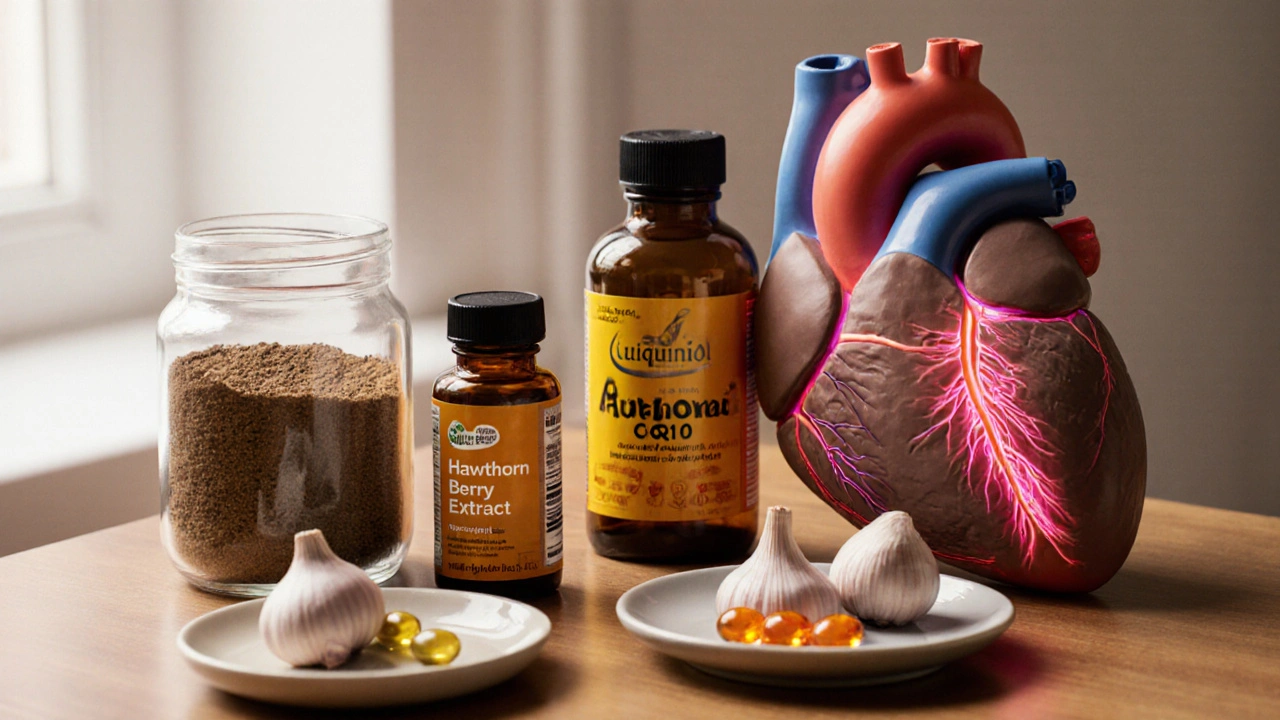Heart Health Supplement Guide – Your Quick Start
When talking about heart health supplement, a product designed to support cardiovascular function, blood pressure balance, and overall heart stamina. Also known as cardio supplement, it blends nutrients that target arteries, cholesterol, and heart muscle energy. Heart health supplement isn’t a drug, but it often works alongside medication to fill nutritional gaps.
Core nutrients that power a heart health supplement
One of the most common building blocks is Omega-3 fatty acids, long‑chain fats found in fish oil that lower triglycerides and calm inflammation. Another favorite is Coenzyme Q10, a naturally occurring enzyme that fuels heart cell mitochondria and can offset statin‑related fatigue. Together they create a double‑hit: omega‑3 reduces plaque buildup, while CoQ10 keeps the heart’s energy factories humming. Studies show omega‑3 cuts blood clot risk, and CoQ10 improves exercise tolerance – both core goals of a heart health supplement.
But supplements don’t exist in a vacuum. Many users also take statins, prescription drugs like atorvastatin that lower LDL cholesterol. Statins can deplete CoQ10 levels, so a supplement that includes CoQ10 helps maintain muscle health and reduces the chance of side‑effects. Another common prescription is Hydrochlorothiazide, a thiazide diuretic used to control high blood pressure by flushing excess fluid. While it cleans out salt, it also pushes out potassium and magnesium, nutrients that a good heart health supplement often replaces.
Understanding those relationships is key: Heart health supplement encompasses omega‑3 fatty acids, requires Coenzyme Q10 for mitochondrial support, and interacts with statins and diuretics to keep the balance right. Think of it as a bridge between your diet and any prescription you’re on. If you’re already on a statin, look for a product that lists CoQ10. If you’re on a diuretic, check for potassium, magnesium, or a balanced electrolyte blend.
Choosing the right product also means checking quality signals. Look for third‑party testing, clear dosage information, and transparent ingredient sourcing. Many reputable brands label their fish oil as “molecularly distilled” to remove contaminants, and they list the exact EPA/DHA ratio. For CoQ10, the active form is ubiquinol, which the body absorbs better than ubiquinone. Pay attention to the form of each nutrient – it directly affects how much your body can use.
Practical tips: start with the dosage recommended on the label, then adjust based on how you feel. If you notice muscle aches after a statin, add a CoQ10 supplement of 100‑200 mg daily. If your blood work shows low triglycerides but higher LDL, boost your omega‑3 intake to 1‑2 g of EPA/DHA combined. And always tell your doctor about any supplement you begin – they can help avoid unexpected interactions.
Below you’ll find a curated list of articles that dive deeper into specific heart‑related meds, supplement comparisons, and real‑world tips for managing blood pressure, cholesterol, and overall cardiovascular wellness. Whether you’re a newcomer looking for a starter pack or a seasoned patient tweaking dosages, the collection covers a wide range of practical insights you can put to use right away.

Arjuna Bark Extract vs Other Heart‑Health Supplements - Full Comparison
A detailed comparison of Arjuna bark extract with five leading heart‑health alternatives, covering benefits, dosage, evidence, safety, and how to choose the right supplement.
October 10 2025